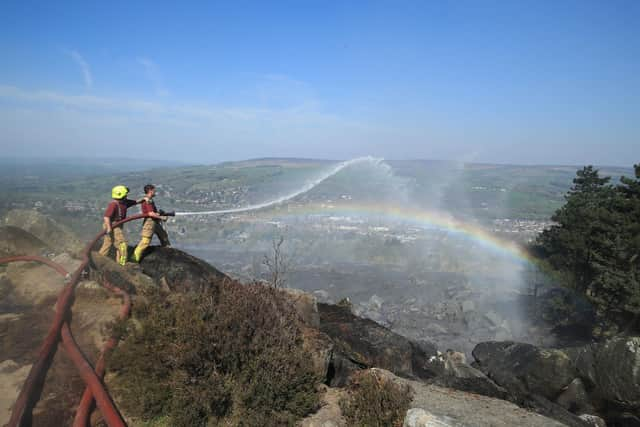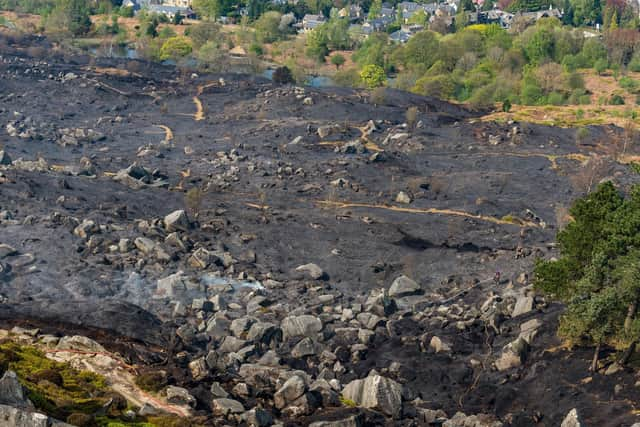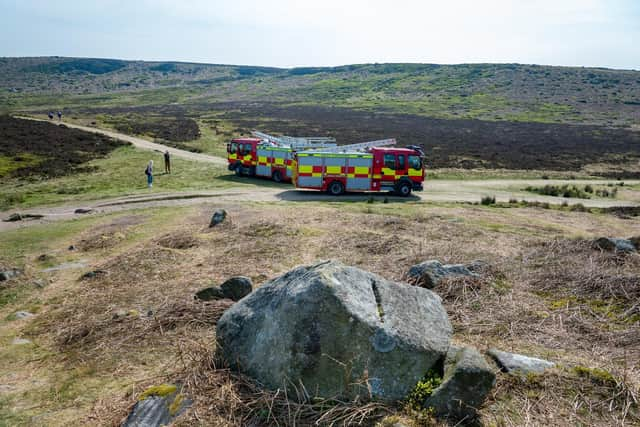Nearly half of all West Yorkshire's moorland fires 'caused deliberately', statistics reveal
and live on Freeview channel 276
A Freedom of Information request submitted by the Yorkshire Evening Post revealed that of nearly 500 moorland fires since 2014, 218 (44%) were started deliberately.
Ilkley and Illingworth were the two fire stations most called to deal with moor fires, with 46 and 87 call outs respectively since January 2014.
Advertisement
Hide AdAdvertisement
Hide AdIlkley Moor suffered from a spate of fires last year, in both May and April, during spells of warm weather.


Arsonist Mohammed Zulkifl was later jailed for 27 months after admitting to setting fire to Ilkley Moor with a cigarette lighter at Easter because "he was cold", despite the weekend's unseasonably warm weather.
West Yorkshire Fire & Rescue Service revealed there were 497 fires involving heathland or moorland in the county between January 2014 and September 2019.
Other fire stations regularly called out to moor fires were Todmorden in Calderdale, Meltham in the Holme Valley and Keighley.
Advertisement
Hide AdAdvertisement
Hide AdFires started by human activity are usually down to dropping cigarettes, barbecues and criminal activity, Bradford City Council's Countryside Manager Danny Jackson said.


"The effects are devastating and wide-ranging", he said.
"Ilkley Moor has only far returned as bracken since the fires last year.
"Moorland fires cause the loss of wildlife from habitats being destroyed - many of which will not return for some time.
"They also affect the air quality and cause water pollution. Moorland peat absorbs carbon dioxide from the atmosphere, and destroying it adds to the amount of CO2 in the atmosphere.


Advertisement
Hide AdAdvertisement
Hide Ad"Streams get polluted with ash which is carried downstream and costs water companies thousands to clean, which of course is paid for by home owners.
"Fires also make the land more susceptible to flooding, which is already a big issue for Yorkshire."
Last year, two local authorities in West Yorkshire announced a ban on barbeques and other human activity which could cause fires on moorland.
Calderdale and Kirklees councils introduced a Public Space Protection Order in April following a fire at Marsden Moor, near Huddersfield.
Advertisement
Hide AdAdvertisement
Hide AdAnyone found lighting a fire or barbeque on moorland during the summer months faces a fine of up to £150.
However, not all deliberately-started fires were criminal.
Danny said the controlled burning of moorland peat is something many councils have carried out in order to destroy old or dead shrubbery to allow its regeneration and introduce wildlife back onto the moors, although this was a practice recently curbed by Bradford Council due to increasing concerns about climate change.
